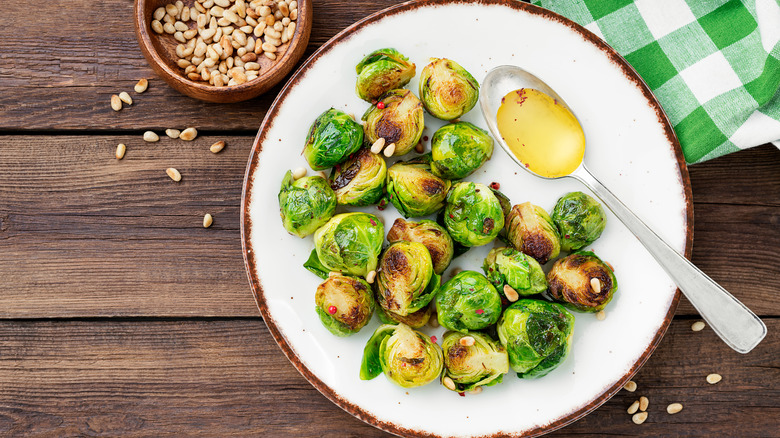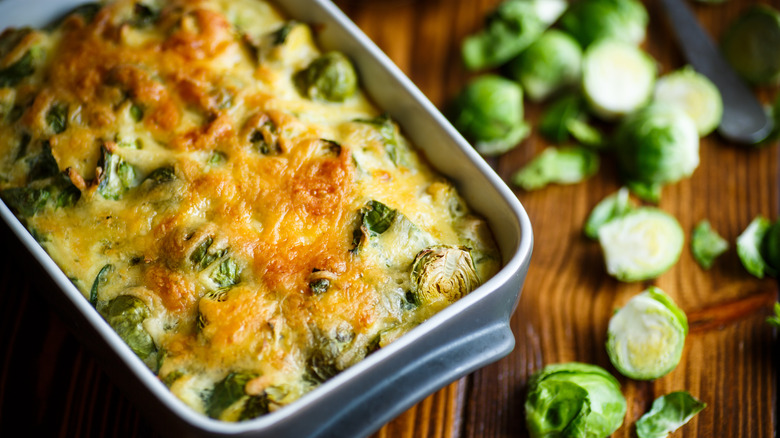The Possible Reason Your Roasted Brussels Sprouts Are Too Dry
If you've ever steamed your Brussels sprouts, you know that it's a cooking method that can easily result in a soggy and sometimes mushy end result. Roasting them instead may seem like the obvious solution, but this can also make them dry and chewy. So why does this happen? According to Eating Well, it all comes down to the oil. Unless you roast your Brussels sprouts with oil, the heat of the oven sucks out their moisture. Oil allows them to both brown and soften, achieving the perfect texture that's neither soggy nor dry.
If you used oil but still ended up with dry Brussels sprouts, it's either because you used too little of it, or because you didn't give it enough time to take effect in the oven. Whether your Brussels sprouts are sliced or whole, The Kitchn's rule of thumb is two tablespoons of oil per pound of Brussels sprouts. The Kitchn recommends using olive oil specifically, but vegetable oil works just as well.
How to fix dry Brussels sprouts
So you took your Brussels sprouts out of the oven only to find that they're too chewy to serve. Now what do you do? Because the issue is lack of moisture, the best course of action is to compensate by simply adding more in, Eating Well shares. Cover the Brussels sprouts in saucy ingredients like cheese, or if you're open to changing up your recipe altogether, Eating Well suggests turning it into a gratin.
According to NYT Cooking, Brussels sprouts make for a naturally delicious gratin, and with ingredients like heavy cream and melted cheese, there's plenty of moisture to soak up. For a less cheesy route, Today's recipe for roasted Brussels sprouts instead relies on a chicken stock glaze for added moisture. Along with butter, brown sugar, and orange zest, this stock-based sauce can help salvage your parched Brussels sprouts. And if all else fails, you can always start from scratch — just make sure you use enough oil the second time around.

